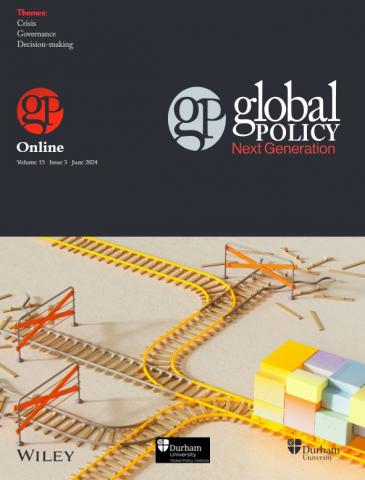Fifth Edition
Global Policy: Next Generation is an annual issue from Global Policy and is funded by the Global Policy Institute. The Institute is hosted in the School of Government and International Affairs and is a joint venture with the Durham Law School. This multi-disciplinary, peer-reviewed publication provides a platform for graduate and early career researchers to publish research on-par with the most rigorous of academic journals. We seek out the next generation of groundbreaking research in global policymaking and broaden horizons in terms of both content and authorship.
Picking up where the last issue left off, articles in the fifth issue of Global Policy: Next Generation tackle the management and decision-making processes of crises by global governance structures. They unpack potential paths and solutions to pressing issues in an attempt to not only attest to the global disorder in which we live but also to identify valid exit strategies from what is more and more described as a political stalemate.
Editorial
Editorial - Flavia Lucenti, Thomas McWilliam, Maren Vieluf and Gregory Stiles
Research Articles
Epistemic competition in global governance: The case of pharmaceutical patents - Cynthia Couette
Read also:
Fourth Edition
Third Edition
Second Edition
First Edition
